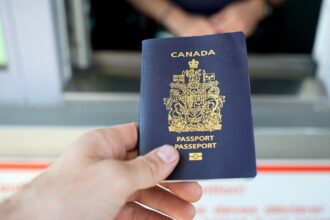In an unexpected turn of events that has rattled Vancouver’s political landscape, Mayor Ken Sim has voiced strong opposition to the provincial government’s proposed legislation that would abolish the city’s historic Park Board. The announcement marks a significant shift in the mayor’s stance, who previously championed the dissolution of the 136-year-old institution.
Speaking at a press conference on Wednesday, Mayor Sim expressed profound concerns about the BC NDP government’s approach to dismantling the Vancouver Park Board, describing the legislation as “draconian” and “frankly un-Canadian.” This dramatic reversal comes less than six months after Sim and his ABC party councilors voted 6-3 to request the province amend Vancouver’s charter to eliminate the elected board.
“This is not what we asked for,” Sim declared, visibly frustrated. “We had a very specific ask to the provincial government. What they’ve introduced goes far beyond that and strips away Vancouver’s autonomy.”
The contentious Bill 44, introduced by Municipal Affairs Minister Anne Kang on Tuesday, would transfer control of Vancouver’s extensive parks and recreational facilities directly to city council by January 2025. The legislation has sparked intense debate about local governance and democratic representation.
Vancouver remains the only municipality in Canada with an independently elected body overseeing parks and recreational facilities. Critics of the current system point to inefficiencies and duplicated efforts, while supporters argue the specialized oversight provides essential protection for the city’s green spaces.
Former Park Board Commissioner Stuart Mackinnon expressed dismay at the proposed changes. “This legislation represents a fundamental erosion of local democracy,” he told reporters. “Vancouver’s parks system was designed to be protected from political interference, and this move threatens that legacy.”
Financial implications remain at the center of the debate. The Park Board manages an annual budget exceeding $145 million and oversees more than 240 parks, 160 sports fields, and numerous community centers across the city. Proponents of the dissolution argue streamlining operations could potentially save taxpayers millions, though specific financial projections have not been released.
Municipal governance experts have raised concerns about the precedent this legislation sets. Dr. Elena Sandoval, political science professor at the University of British Columbia, notes: “When provincial governments intervene in municipal structures without comprehensive consultation, it raises significant questions about the autonomy of local governments across Canada.”
The province defends its approach, with Minister Kang stating the changes will “improve service delivery, reduce bureaucratic barriers, and create a more responsive parks system for Vancouver residents.” However, the legislation’s broad scope has alarmed even those who initially supported reform.
As this political drama unfolds, Vancouver residents are left wondering about the future of beloved institutions like Stanley Park, Queen Elizabeth Park, and dozens of community centers that have defined neighborhood life for generations. Will consolidating power under city council lead to more efficient management of these spaces, or will it remove a crucial layer of specialized oversight that has preserved Vancouver’s reputation as one of the world’s most livable cities?







